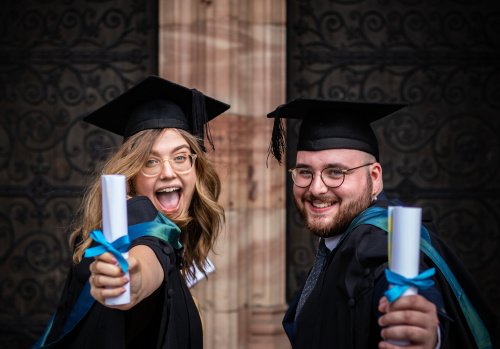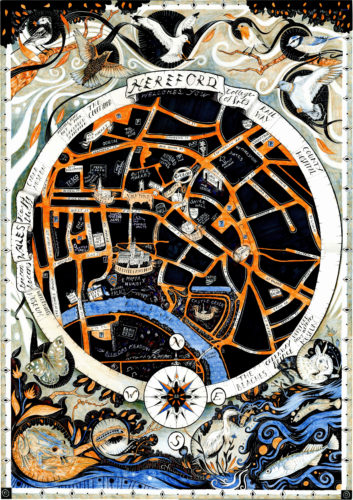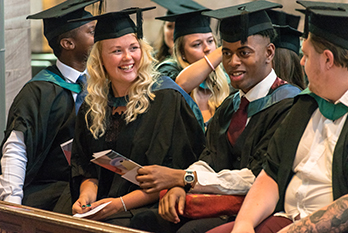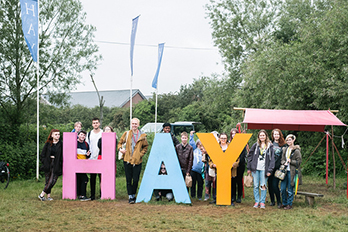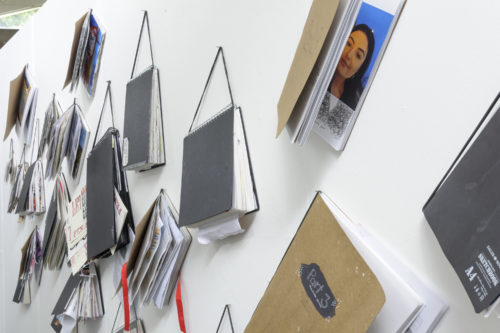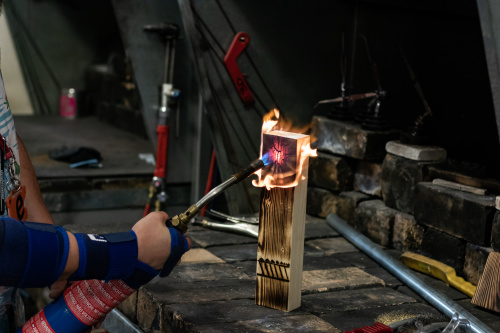Debating the dissertation
Published on 26.02.16
The dissertation is a contentious subject at HCA and one that is constantly under review. Here, we ask students to write a traditional dissertation, rather than offering an alternative pathway for students to demonstrate their independent learning as part of a major final academic project. No literature denies the importance of supporting the acquisition of
Categories
The dissertation is a contentious subject at HCA and one that is constantly under review. Here, we ask students to write a traditional dissertation, rather than offering an alternative pathway for students to demonstrate their independent learning as part of a major final academic project.
No literature denies the importance of supporting the acquisition of ‘deep’ or transformative learning through an independent final year project. How that project is developed and delivered is more controversial.
Research carried out by Healey, et al (2013) puts forward alternative, creative frameworks for the independent learning experience that also engages students as collaborative co-producers of knowledge.
Healey, Jenkins and Lea (2014) also explore various frameworks for designing research-based programmes within the specific context of college based HE.
However, although writing a dissertation can be seen by some to be a daunting project, it is also seen (mostly after writing it) as a valuable process by many students. This can be evidenced by positive reports from students themselves both at HCA (I’ve just had two L6 students visit specifically to tell me how valuable they found this experience) and in other contexts.

My initial thoughts regarding the debate are:
- we cannot deny learners the option to write a traditional dissertation at L6 because we do have learner feedback that suggests this is an integral and highly valued part of their learning experience at HCA
- we must prevent grade inflation or a slip in our rigorous academic standards (a thought echoed by students in an initial workshop on student scholarship) and therefore we need to carefully evaluate and design any alternative models we might offer
- there is sufficient external evidence to suggest that alternative models for academic independent final projects – ‘capstone’ projects can be equally, if not more, rigorous than the traditional dissertation, and that such projects, if well designed, can also support transformative independent learning.
What, then, does the traditional dissertation ask learners to do?
In terms of the essential skills the dissertation process supports, my feelings are that these will encompass:
- the ability to research from valid sources independently
- the ability to create and devise a meaningful question
- the ability to empathise and explore an idea from a range of perspectives
- the ability to explore the link between theory and practice
- the ability to decontextualise and recontextualise knowledge
- the ability to independently project-manage themselves
- meta-cognitive awareness through self-analysis
- the ability to organise and prioritise thoughts
- the skills to convey those thoughts through a communication means that enables a reader or viewer to understand and engage with the subject
- the ability to think critically and challenge previously held thought
- the ability to be methodical and apply external conventions
This list is, of course, not exhaustive. Nor does it mention ‘writing’, although this is the usual means to communicate a dissertation. Perhaps an e-portfolio system such as PebblePad might be used to structure an alternative project that allows learners to demonstrate the above skills (and more) through a range of multi-modal methods?
The role of the dissertation supervisor is crucial here, too. For learners do not, in actuality, carry out the dissertation process alone, but with a supervisor to guide, act as critical friend, signpost, encourage and support. Again, much literature is available on this subject, including Wisker’s excellent publication ‘The Good Supervisor’ (2012).
As I say goodbye to my dissertation students this year, I can only say that working with them all has been a real pleasure to follow their journeys. Supervising a dissertation, or final project of whatever form, is incredibly rewarding.
But that is only one side of the story. Perhaps we need to capture evidence to build a more comprehensive picture of how the current module is regarded amongst all L6 students who have recently completed this project, so we do not rely on data gathered from students who seek us out to complain or extoll the virtues of the dissertation.
We would then find out whether a majority of students would welcome the introduction of a choice between the traditional and an alternative model. If we found this to be the case, then designing an appropriate alternative might form a research project that supports the embedding of scholarly activity within HCA.
